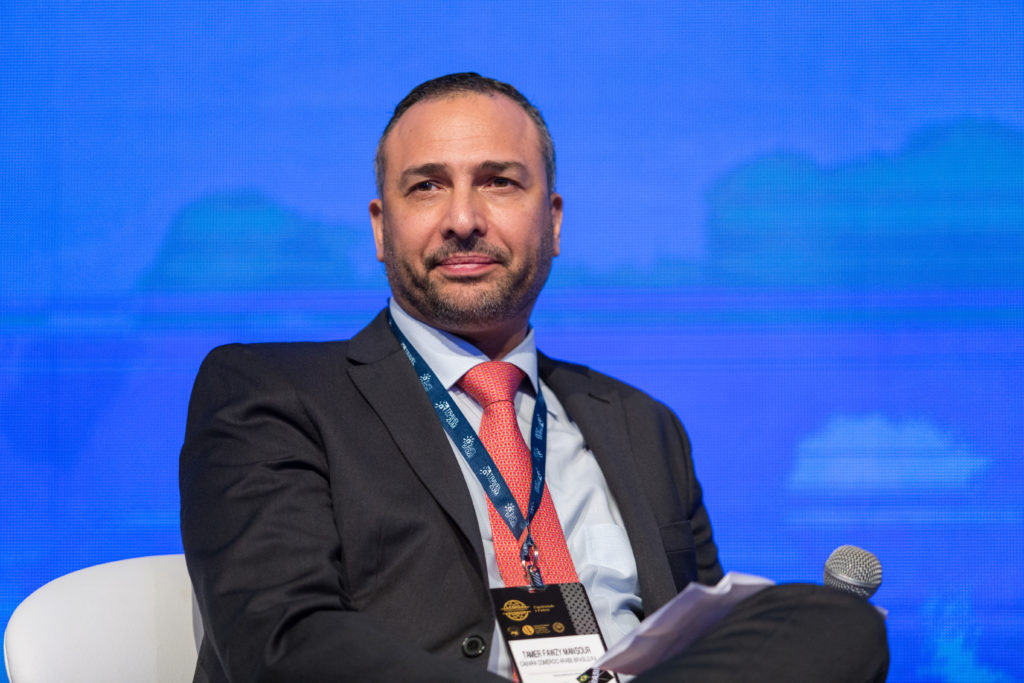By Tamer Mansour
The suspension of 11 Brazilian poultry slaughterhouses, responsible for 65% of chicken shipments to Saudi Arabia, shows that the largest market in the League of Arab States and the second leading destination for the product from Brazil is rapidly advancing in its plans to achieve food self-sufficiency.
Known as Vision 2030, the Saudi plan that was announced more than a decade ago to safely transition the kingdom’s economy to the post-oil era through investments in innovation, renewable energy, food security, and economic diversification, has been boosted during the pandemic, with the recent investment of USD 1.8 billion in Alamanni to double the company’s current production capacity for poultry products.
If the goal of Vision 2030 was previouly having 60% of the demand for chicken met by local companies by 2030, the Saudis now boldly target 80%, a point at which they will even be able to start re-exporting poultry to neighboring countries from export processing zones already established for this purpose in the kingdom’s ports.
Amid the pandemic, which made even more stark in all Arab countries the need to reduce foreign dependency on food, Saudi Arabia seems to have renewed its willingness to invest the oil capital accumulated over decades in the acquisition of the technologies required to make large-scale chicken production viable in a desert country with low availability of water and almost no grain production.
It is a fact that recent moves by the Saudi government have worried Brazilian exporters of poultry products with business in the kingdom, some dating back to 1977, when the first shipment was made by Brazil in exchange for fossil fuel in the wake of the Oil Crisis.
After all, Brazil has been a reliable partner in food supply for all these years, always within the demanded amounts and specifications of health, quality, and production methodology required by the Saudi authorities and the Muslim consumer.
However, it is necessary to understand that Saudi Arabia has long been showing signs that it would like to advance its relationship with Brazil beyond the purchase and sale of goods and towards strategic cooperation in the area of food security.
The Saudis could be interested in expanding the participation of their sovereign and private funds in Brazilian food companies, such as the successful Minerva-Salic partnership, which has made the slaughterhouse the largest exporter of beef in Brazil, especially to the countries of the Arab League.
The Saudis could be interested in a closer cooperation with the Brazilian Agricultural Research Corporation (Embrapa) to enable the development of crops capable of yielding in the severe climatic conditions of the Arab country in a joint strategy to boost local food production chains and maybe renewable energy and agricultural production products such as genetics, vaccines and grains.
The Saudis could be interested in a closer cooperation with Brazilian companies to enable local productive investments, as BRF has already done in the country by acquiring plants that will provide access to one of the world’s most demanding markets for poultry protein.
Saudi Arabia will continue to be an essential market for Brazilian poultry, along with other countries in the Arab League, namely Yemen and Egypt, which have consistently intensified the rate of purchases of poultry from Brazil, thus making up for the restrictions in the Saudi market at least to some extent.
The wealthiest country in the League of Arab States is becoming an even more relevant market for technological solutions in agribusiness and a strategic partner in the making of productive investments that could benefit both sides of the partnership.
The bilateral relationship is changing. It is up to all of us to choose what role we will play in the change.
*Tamer Mansour is CEO and secretary-general at the Arab Brazilian Chamber of Commerce.
Translated by Elúsio Brasileiro




